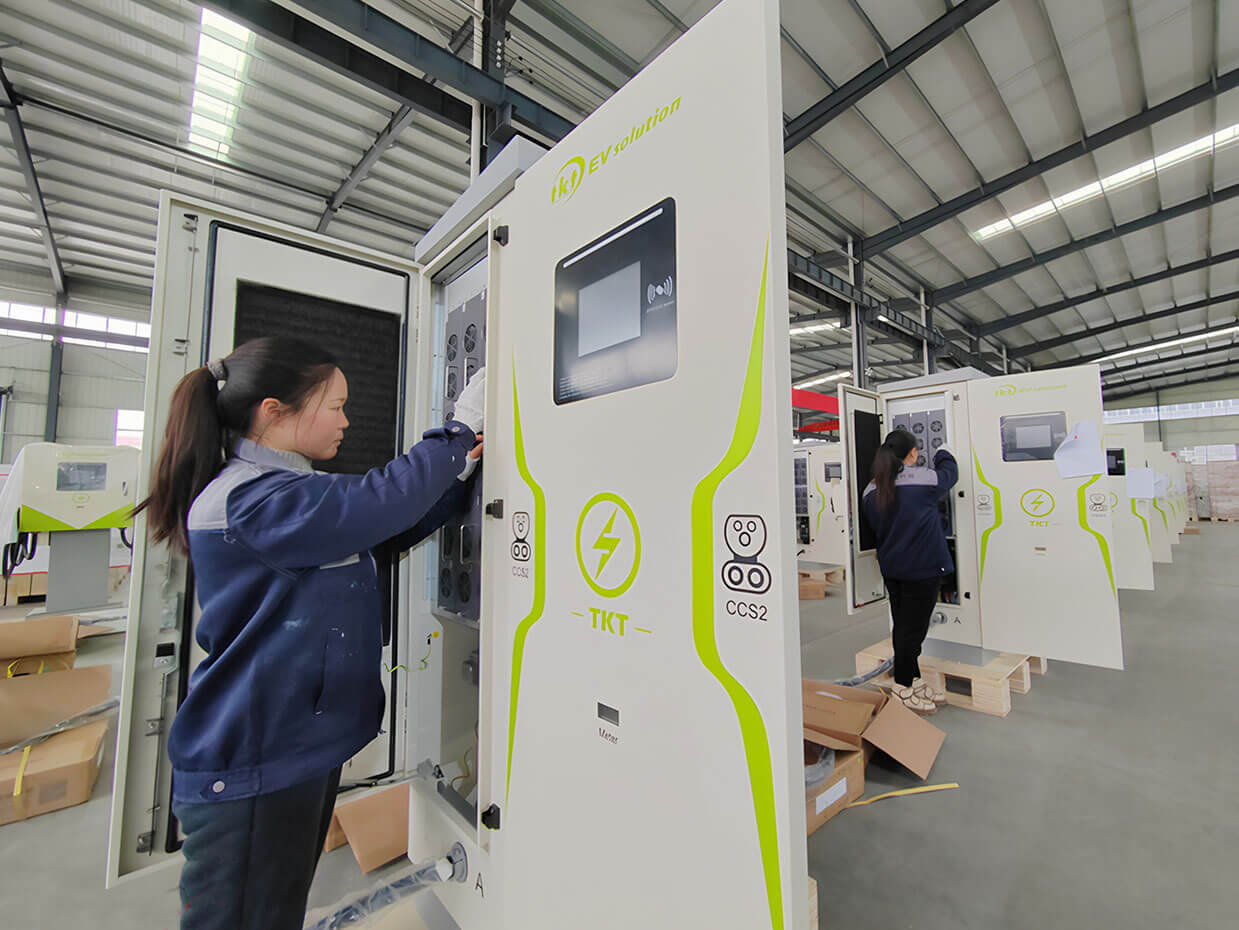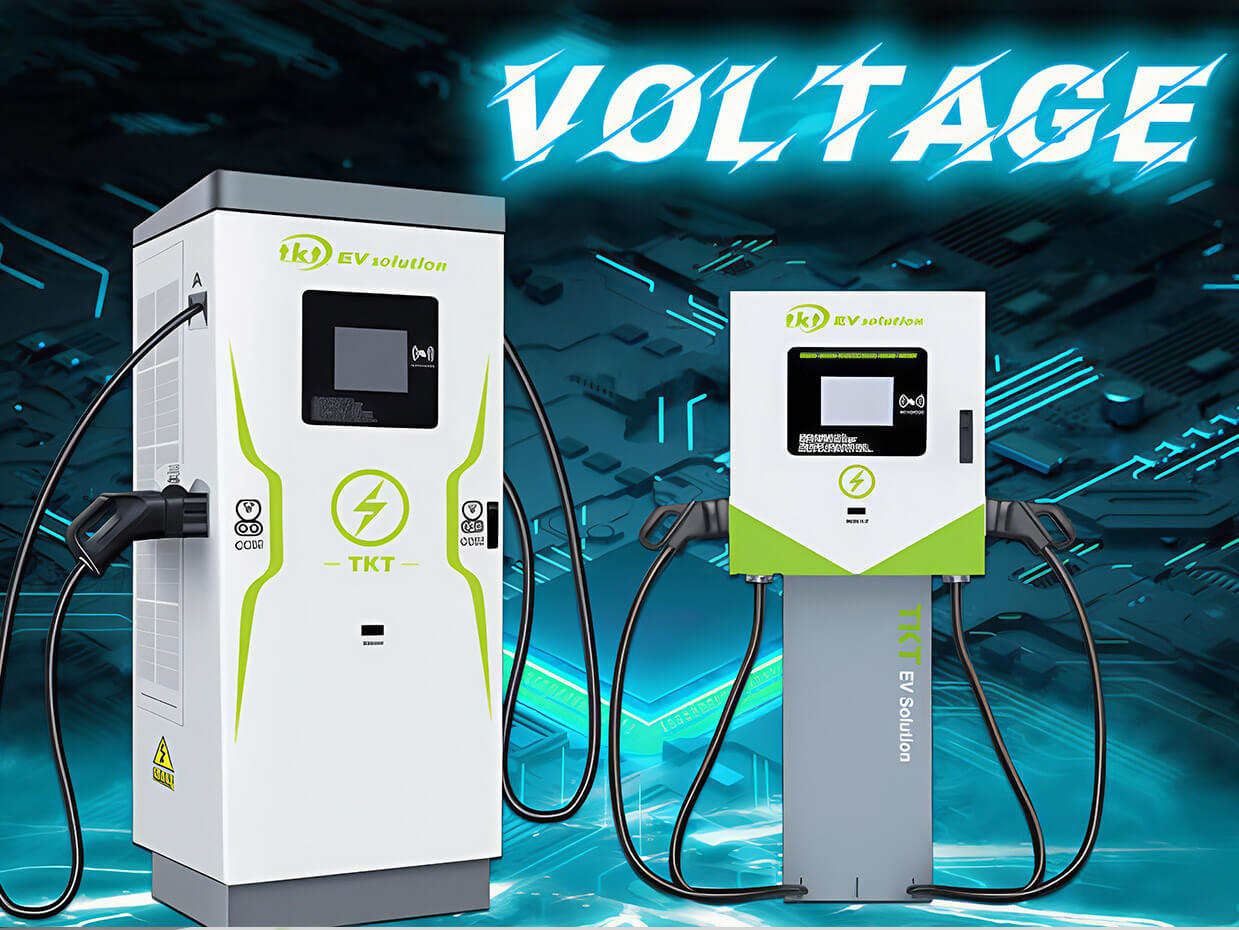RVs have a very large number of models because of the different scenarios of use. The voltage and internal structure of different RVs vary very much. Therefore RV air conditioner types are also very diverse. In this article I will describe the advantages and disadvantages of different types of RV air conditioners.
There are two most common ways to install RV air conditioners: one is to install it on the roof of the RV, and the other is to install it on the floor of the RV. They each have their own characteristics, and the choice of which installation method should be based on the specific situation of your RV. Next, I will explain their characteristics to you.
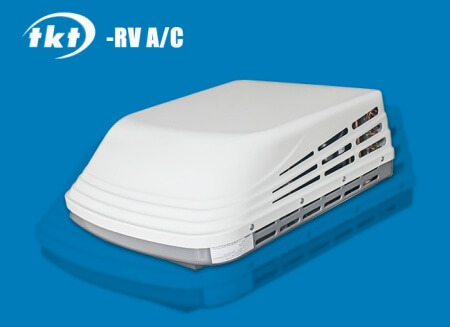
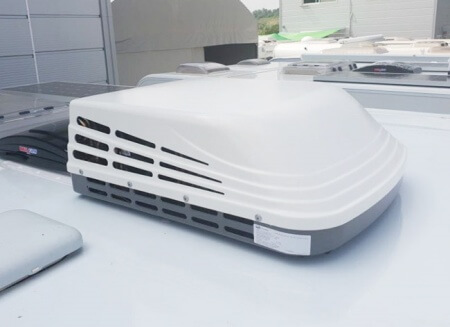
Advantages:
✔ From the schematic diagram of the RV air conditioner, it can be found that the main body of the equipment is installed outside the RV. This installation method does not occupy the space inside the RV, does not need to organize items, and has a high utilization rate of the space inside the RV.
✔ Installed on the roof, air circulation is easier. This will improve the heat exchange efficiency and achieve a better cooling effect.
✔ Because it is outside the RV, the noise of the RV air conditioner unit during operation will be relatively small.
Disadvantages:
✔ From the RV air conditioning diagram, you can clearly see that it increases the height of the RV. So you need to be aware of the vehicle height restrictions in your area.
✔ Roof space situation. Some RVs now have solar panels installed on the roof, which will result in a situation where there is no space on the roof to install them.
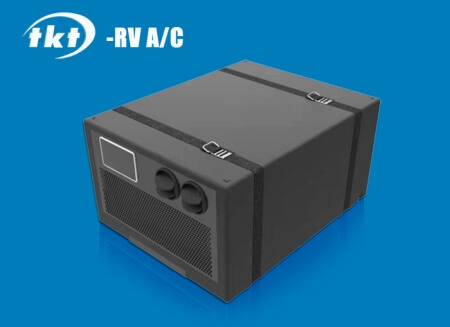
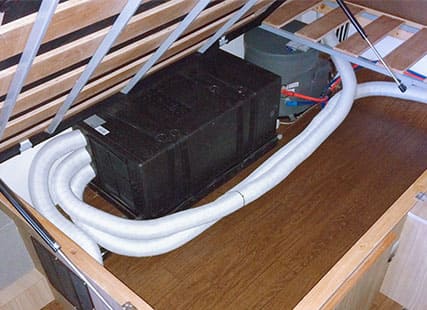
Advantages:
✔ Installed inside the RV, so it has no effect on the height of the RV body. You don't need to change your usual driving habits, and you don't have to worry about whether the RV can cross the bridge.
✔ The ventilation holes are arranged flexibly. You can freely choose the location of the ventilation holes according to the situation of the action area. This way the comfort level is more in line with your needs.
Disadvantages:
✔ Our RV undercounter air conditioners are low noise. We added more sound-absorbing foam, optimized the compressor power, etc. These solutions will reduce some of the noise. However, it will be slightly noisier than the rooftop RV air conditioner. If you are very sensitive to sound, we recommend top installation.
✔ If you already have items placed on your sofa and bed, this air conditioner will take up a certain amount of internal space.
RV air conditioners are divided into two types according to voltage. One is DC RV air conditioner. The other is AC RV air conditioner. North America generally uses 110V, and other countries generally use 220V. This type of air conditioner belongs to AC air conditioner. This type of air conditioner not only has good cooling effect, but also has good heating effect.
24V/12V RV air conditioners belong to DC air conditioners. These are selected according to the power supply of your RV. This is a prerequisite. DC air conditioners are applicable to many scenarios. It is also suitable for trucks, boats, etc.
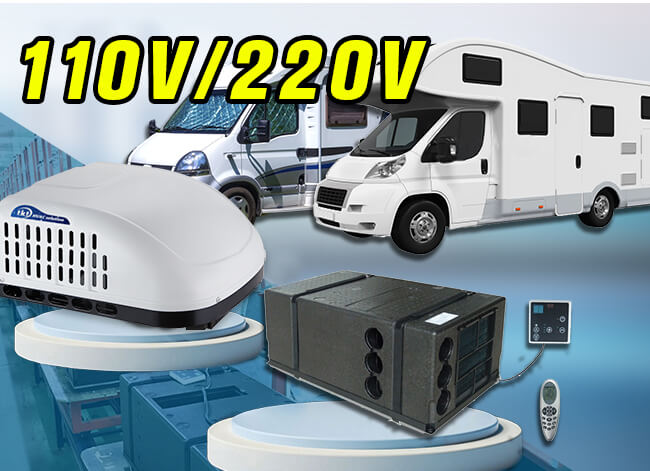
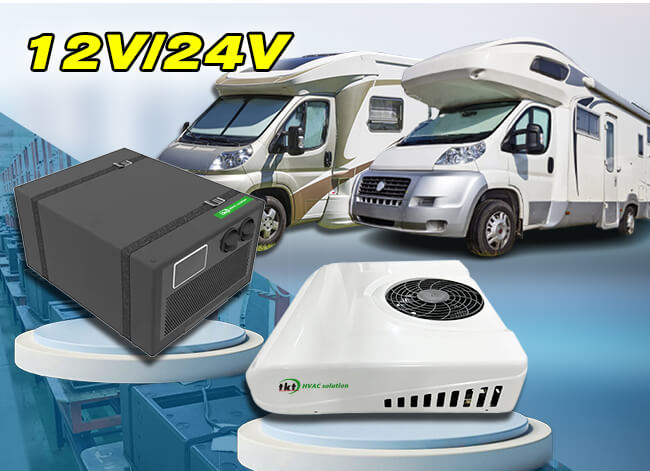
TKT HVAC was established in 1998 and has 25 years of design and manufacturing experience. We have a team of experienced engineers who continuously optimize the internal structure and components of air conditioners. We strive to find a balance between quality, performance, noise and price. All for your peace of mind.
If you attach great importance to quality, choose TKT HVAC. We are the air conditioner supplier to TATA Motors and BYD Auto, both Fortune 500 companies. If we are not strong enough, we will not qualify.
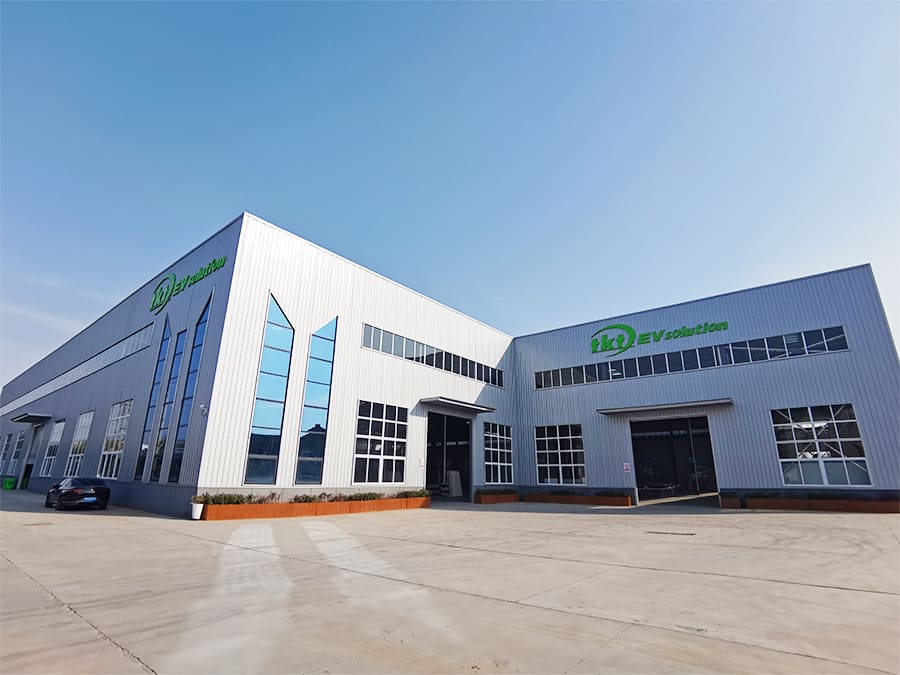
Facebook: https://www.facebook.com/TKTHVAC/
linkedin: https://www.linkedin.com/company/tkt-hvac
YouTube: https://www.youtube.com/@TKTHVAC

